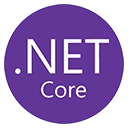ASP.NET Core MVC and ASP.NET Core Web API are both frameworks for building web applications, but they serve different purposes and are optimized for different scenarios. Understanding the differences between them is crucial for choosing the right approach for your application.
1. Purpose
ASP.NET Core MVC: This framework is designed for building web applications that serve HTML content. It follows the Model-View-Controller (MVC) architectural pattern, which separates the application into three main components: models, views, and controllers. MVC is ideal for applications that require user interfaces and dynamic web pages.
ASP.NET Core Web API: This framework is specifically designed for building RESTful services that return data in formats like JSON or XML. It is optimized for handling HTTP requests and responses, making it suitable for applications that need to expose data to clients, such as mobile apps or single-page applications (SPAs).
2. Response Types
ASP.NET Core MVC: The primary response type is HTML. MVC applications typically return views that are rendered on the server and sent to the client. The views can include dynamic content generated from models.
ASP.NET Core Web API: The primary response types are JSON and XML. Web API applications return data in a format that can be easily consumed by clients, such as JavaScript applications or mobile apps. The focus is on data rather than presentation.
3. Routing
ASP.NET Core MVC: MVC uses attribute routing or conventional routing to map URLs to controller actions. The routing is designed to handle requests for views and can include parameters for dynamic content.
ASP.NET Core Web API: Web API uses attribute routing to define routes for HTTP methods (GET, POST, PUT, DELETE). The routing is focused on actions that manipulate data rather than serving views.
4. Sample Code Comparison
ASP.NET Core MVC Example
// HomeController.cs for MVC
using Microsoft.AspNetCore.Mvc;
public class HomeController : Controller
{
public IActionResult Index()
{
return View(); // Returns a view
}
}
ASP.NET Core Web API Example
// ProductsController.cs for Web API
using Microsoft.AspNetCore.Mvc;
using System.Collections.Generic;
[ApiController]
[Route("api/[controller]")]
public class ProductsController : ControllerBase
{
[HttpGet]
public ActionResult<IEnumerable<string>> Get()
{
return new string[] { "Product1", "Product2" }; // Returns JSON data
}
}
5. Content Negotiation
ASP.NET Core MVC: MVC does not typically involve content negotiation, as it primarily serves HTML views. The response is usually a rendered view based on the model.
ASP.NET Core Web API: Web API supports content negotiation, allowing clients to specify the desired response format (e.g., JSON or XML) through the Accept header in the HTTP request. The API can then return the appropriate format based on the client's request.
6. State Management
ASP.NET Core MVC: MVC applications often maintain state using sessions, cookies, and view models. This is important for user interactions and maintaining user context.
ASP.NET Core Web API: Web APIs are typically stateless, meaning that each request from a client contains all the information needed to process that request. This aligns with REST principles, making it easier to scale and manage.
Conclusion
In summary, ASP.NET Core MVC and ASP.NET Core Web API are tailored for different use cases. MVC is ideal for building web applications with user interfaces, while Web API is designed for creating RESTful services that return data. Understanding these differences will help you choose the right framework for your specific application needs.

